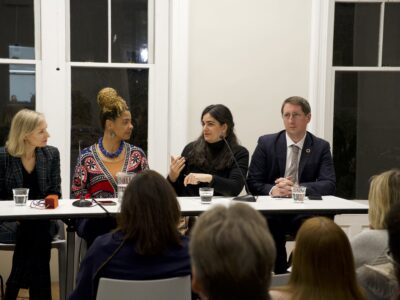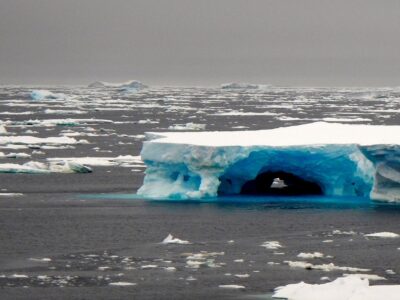It is the first week of May and already this month we have been put on alert. Three reports have reached our in boxes and mobile devices, each released by panels and agencies with solid credentials and reputations for scientific excellence. The content is different, but the thread that connects them is reliable and consistent — climate change and its impacts are measurable both here at home and around the world, and the future is on track to continue with accelerated results.
All of this points to an urgency to change the conversation to reach beyond the already informed and connect to a much larger population. But how? The response to this question is perhaps as complex as the climate system itself.

Tuesday’s release of the third National Climate Assessment from the U.S. Global Change Research Program caused me to wonder how many people have read reports one and two? We can be certain it is not enough. So how do we engage more broadly with the public, connecting the expansive range of individuals who need to be part of the climate discussion with this rich resource?
Optimized for mobile devices, this new release is designed to reach people where they are spending their time…on the move. Graphics are interactive and accessible, and can be downloaded or shared through social media. Impacts and concerns can be viewed by region, bringing this information to a personal level with local impacts. Yet even with interactivity and an enhanced localized perspective, will this third report be enough to change the conversation? Planning and care has gone into how to use this report to teach, to educate and to connect…but in the end the format is still a report, with the responsibility on us to bring it to life.

The second release this week, “The Arctic in the Anthropocene: Emerging Research Questions” [1], identifies emerging issues for future arctic research. How is this National Research Council report related to the National Climate Assessment? Consider its title: The Anthropocene is a label many have applied to the “geologic age of humans” identified through our impact on the planet. A warming climate is without question one of the largest of our human impacts, and it will continue to affect the Arctic at a higher rate than the mid-latitude regions, leading to the need to reexamine our research priorities there. The connection to the national assessment is tangible.
The third release came earlier this week from Yale’s Project on Climate Change Communication, a group best known for their report called Global Warming’s Six Americas 2009, identifying differences in individual beliefs in the reality of climate change. The groups’ newest report continues to examine the varying perspectives on climate that permeate our country, this time focusing on individual views on the stability of the climate system.
Perhaps not surprisingly, people’s strength of belief in climate change affected their mental model regarding the stability or fragility of the overall climate system. Those with the lowest conviction that climate is warming feel the climate is stable and climate is a random system, while those who are convinced the climate is warming see the system as fragile, poised more tenuously at a precarious threshold.[2]

Three excellent and informative reports, but how do we bring them to life with different communities of individuals? And how do we stop identifying people as victims, or the cause of climate change, and move towards “solution space” in our conversations? While the reports are important, the conversations and opportunities we create around them are critical. If conversations continue as they have without “listening” and “connecting,” the reports will be a mere status update, not the tool for change we need. Here are two different approaches to “changing the conversation”…


- Lead With Solutions – start with empowerment.
- Focus on Opportunities – climate change can provide positive opportunities, so use them.
- Keep Things Local – we understand local better than the global impacts.
- Empower People – reinforce that we can make a difference and help people identify how they can help.
- Do not Fall Into the Information Trap – instead of citing data, focus on common values, opportunities and solutions.
- Do Not Try to Be a Scientist – be a friend, a colleague — fill the same need in their lives you always have. This is your trusted position
Suggested links on the National Climate Assessment: http://www.globalchange.gov/climate-change, or: http://nca2014.globalchange.gov/report
American Geophysical Union: http://thebridge.agu.org/2014/05/06/the-climate-change-conversation-needs-your-voice/
Communicating the report: http://ecoaffect.org/2014/05/06/6-tips-for-communicating-about-the-national-climate-assessment/
For teachers – teaching climate change: http://www.climate.gov/teaching/2014-national-climate-assessment-resources-educators
Videos to support the regional sections of the report: http://vimeo.com/channels/nca



